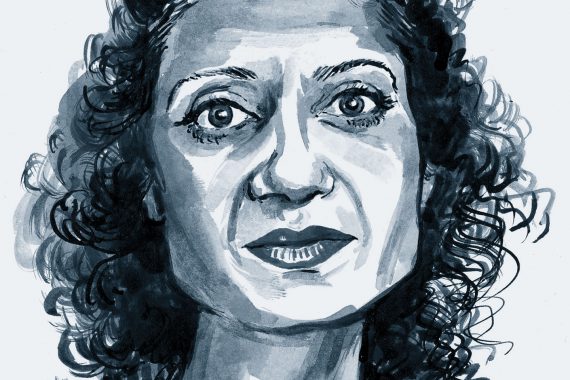Being a patient in the time of Covid

It’s the time of the month. It’s hormones. It’s my age. These are all the excuses I told myself for having sore, lumpy breasts. But when one lump persisted beyond my menstrual cycle, and then the next, I knew I had to put this niggling doubt to bed.
I had opted out of breast screening six months earlier. I have few risk factors and I figured the chances of my being overdiagnosed were higher than the chances of my being saved. Now I was actually faced with a symptom, I started questioning this decision.
I went on holiday to forget about it and, as the month went by, the lump felt less and less serious. I contemplated cancelling my clinic appointment but went along to be on the safe side. I breezily told the consultant that I was sorry for wasting everyone’s time and I thought it was a just skin cyst… and it was.
But I was still put through the conveyor belt of investigations – mammogram followed by ultrasound. When the mammogram on the other breast had to be repeated twice, I assumed this was because it was too small to fit properly in the plates, and I joked about it. I still didn’t worry when I was told about calcifications in this breast, as I thought I would undergo serial monitoring.
The penny finally dropped when the radiologist told me I needed a core biopsy. Looking back, I must have sounded really stupid when I whined that I didn’t even come in for that side. I was confused and desperate to discuss my options. Did I need a biopsy? Could I have annual surveillance? What are the chances of overdiagnosis? And most of all – could I speak to my husband?
I know that the pandemic has caused people to give birth alone and die alone and my situation came nothing close to this. But at that moment in time, I was feeling really alone and didn’t know what to do. I begged them for 10 minutes to call my husband, which I did from a public corridor watching a young woman having chemotherapy through an open door. I just hope she didn’t hear me debate whether I should have an investigation, when cancer was clearly ravaging through her body. My husband offered me wise words – the biopsy isn’t that invasive, and we would know what we were dealing with.
I drove home alone and cried. I had been away all morning so what was I going to tell my kids? The next nine days were unbearable. I would vacillate between total denial, and thinking I was going to die of cancer. I became both a radiology and pathology expert within one week, reading up on all the different types of breast calcifications and their subsequent tissue diagnoses. It was essential for me to have as much information as possible to make an informed decision, once the result was available. My wonderful GPs at Frome Valley Medical Practice understood this and ensured I had access to the result before my clinic appointment.
Thankfully, the result was benign. But I’ve learned that it’s really hard being a patient during Covid, and shared decision-making and support from loved ones is more important now than ever.
Dr Shaba Nabi is a GP trainer in Bristol. Read more of Dr Nabi’s blogs online at pulsetoday.co.uk/nabi
Related Articles
READERS' COMMENTS [4]
Please note, only GPs are permitted to add comments to articles










Sorry you have been through all that but am glad that it turned out ok in the end.
IT’S DIFFICULT BEING A PATIENT ANY TIME
Glad things are ok. As the husband of someone who, although not desperately or acutely unwell, has multiple visits to hospital and investigations through chronic illness, you realise how each visit brings a degree of anxiety or even frank terror. I cannot begin to imagine how people have been though more invasive tests and treatments or even childbirth or death alone have felt and I agree with John Munro above.
Glad all is OK. The numbers of calls and helping reception recently have shown me that yes, being a patient is difficult – but it doesn’t help when you lie as a patient, are too lazy to speak a history and DNA countlessly and expect the system to bend over. Clearing the waste creates clarity. As does removing medicolegal lawyers.